Mike Olinger, the doctor who wrote this, is one of the doctors in the ER that left to help in New Orleans. This is an email that was forwarded and I wanted to share. It impacted me tremendously, and it shows the tremendous efforts and selflessness of the rescuers and volunteers. It is also so painful to read.
_______________________________
Emergency Medicine Faculty and Residents On Behalf Of Olinger, Michael L.
Sent: Thursday, September 08, 2005 5:56 PM
Subject: [EMER-DEPARTMENT-L] Back home in Indiana
Dear colleagues,
First I want to thank those of you who helped out by covering my shifts. I am truly grateful. If you would like me to work one of yours in return over the next month or so, I will be happy to do so.
I left Indy for Shreveport LA Sunday morning, August 28, at O-dark-thirty. We staged in Shreveport until Monday morning, and when the hurricane hit, I went on the advance team to Baton Rouge, followed by two Type III US&R Task Forces and one Type I Task Force. After meeting with the state officials in Baton Rouge, we went by caravan under police escort to the parking lot of a Sam's Club in East Jefferson Parish, New Orleans. We arrived around midnight and slept in our cars in the parking lot. We launched operations from the parking lot Tuesday morning and rescued 339 people from roof tops the first day. Several were quite ill with such things as decompensated CHF, exposure, and dehydration (the sun was intense and the temperature was 95 degrees with ~100% humidity). There were no ambulances available for us, so the sicker ones we put into the back of pick-up trucks or staff cars and transported to the one local hospital that was still accepting patients. The number of rescues was limited by the number of boats in the water. We were working with LA Department of Fish and Wild Life and had 26 boats assigned to us. We got back to the Sams Club Parking lot at ~ 7:30 PM and packed up and moved to the New Orleans Saints training facility that night, which was home for me the remainder of the time I was gone. No electricity, no running water so no air-conditioning and no showers.
The next day hundreds of volunteers with boats showed up and brought over 2,500 rescued people to the access point we were staffing.
Over the next 10 days we completed hasty searches and initial rescues of essentially 100% of the flooded area in New Orleans. We rescued thousands of people and moved them from the roofs of homes and islands of land surrounded by flood waters to evacuee collection points from which they were eventually transported "shelters". In the early days of the operations, these shelters were really worse than the refuge camps we see in third world countries on TV. There was no food, water, sanitation, security, or organization. For the first 6 days there were no local hospitals accepting patients. The cities plan was that sick patients would be transported to the evacuee collection point on Interstate 10 and would be triaged there by a pair of doctors from the State Health Department to be flown or transported by ambulance to a hospital or DMAT in Baton Rouge (2 hours by ground, 30 minutes by air). We were uncomfortable with transporting our patients to the evacuee collection point which had thousands of evacuees waiting sometimes up to three days for transportation to Baton Rouge or elsewhere, so we set up a treatment center at the point where the boats were unloading the rescued, and provided stabilization of acute problems prior to evacuating.
On Thursday a DMAT was brought into the New Orleans International airport. They traveled all night and arrived at the airport at 0900. They set up their operation and began receiving patients at 1100. They saw over 2,000 patients that first day. A DMAT consists of 2 MD's, nurses, techs, and other support personnel. They were overwhelmed. I met with one of the doctors this Monday who told me their story. Their triage decision making was that anyone requiring more than 10 minutes of medical care was triaged as black, or expectant. They set up a ward on the terminal for the expectant and staffed it with a nurse and some morphine. Some of these patients took 2-3 days to die. They had no means to evacuate critical patients to a higher level of care.
While there were incidents of looting and raping and shots fired at officers, these incidents were the results of the actions of a very few individuals, and were probably no more frequent than what happens any night in a city the size of New Orleans. The vast majority of the people we rescued were the elderly and infirmed who couldn't evacuate and poor people who had neither the means to evacuate nor a place to go. Without exception, every evacuee I met was courteous, pleasant, gentle, and kind. These people were herded like cattle into victim collection areas and "shelters" to await further evacuation to places unknown. Families were often separated, and there was little if any tracking of where these people were going.
We will be receiving up to 3,000 of these evacuees into the Indianapolis area over the next few weeks, and those that work at Wishard will get to meet some of them I'm sure. I only hope that Indianapolis is able to treat them with the compassion and dignity that they deserve.
Again, thank you for your support which allowed me to participate on this incredible mission. I'm blessed to work with such a great crew. I worked both the Oklahoma City Incident and the World Trade Center Incident. Although no one has any idea how many bodies will eventually be found in the buildings and the attics of houses when the flood waters are eventually pumped out of the city, without doubt, this is the largest disaster (on a humanitarian scale) that our country has faced since the Civil War. Tens if not hundreds of thousands of displaced people who left their homes with nothing more than the clothes on their backs.
MO |

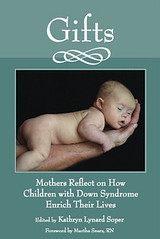
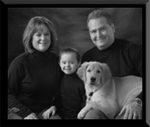
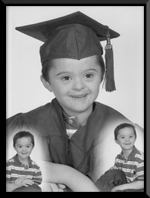
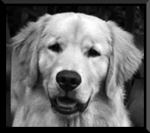
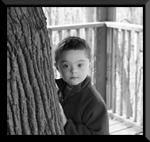
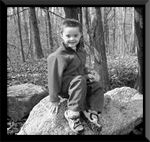
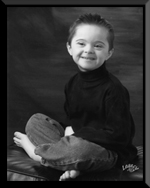
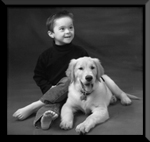
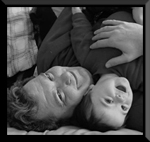
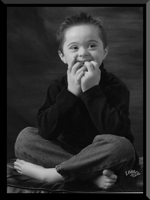
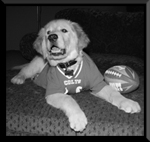




3 comments:
Wow,,,,,very powerful and thought provoking.
It truly warms your heart and stimulates your soul to know that individuals such as this person are part of the fabric of humanity of this great country.
My faith in our government has never been strong,,,,but the faith I have in individuals and charitable groups is great and I know it is because of selfless people such as this, that we [as a nation] will overcome this disaster.
Thanks for sharing!
A truly inspirational post. It makes you wonder about those individuals who are here on this place we call earth, it seems they are reallyangels who belong in heaven. It never ceases to amaze me at how selfless and truly caring such individuals are. Willing to give more of themselves then most of us for complete strangers.
My friend, Uncle John to my kids, takes his only two weeks of vacation to ho to Haiti to help heal those who cannot otherwise he healed. I feel that as individuals if we know such giving people, it can only help us to grow and inspire us to give more of ourselves.
Thanks for sharing such a touching story, Our hearts, thoughts and prayers go out to those in the south.
belovedlife,,,I just saw an amazing documentary on Haiti in PBS this week. I read about 'Uncle John' on your wifes blog.....he too sounds like an angel on this earth!
Hi Mauzy.....miss you!
Post a Comment